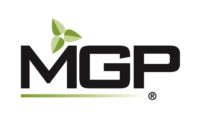PMMI: increasing standards compliance elevates safety
A packaging industry expert shares good practices lead to across-the-board benefits.

Snack food makers and wholesale bakeries follow many standards to ensure product safety and protect their workers, brand image, and business. Compliance with standards, both regulatory and normative, results in safer machines and working environments, fulfills legal requirements, and reduces liability exposure, according to The Impact of Global and Local Standards on OEMs & Suppliers, a report published in April 2023 by PMMI Business Intelligence, a division of PMMI, The Association for Packaging and Processing Technologies.
Wide-reaching benefits
On the production side of the business, standards also provide
- A common ground for best practices and communication with OEMs
- A foundation for in-house safety procedures
- Less chance of schedule- and budget-disrupting surprises during the design process
- A more functional machine
- Greater uniformity across lines, plants, and markets
- Higher ROI
When it comes to equipment, machine suppliers and component suppliers are responsible for identifying and complying with all relevant standards. So, snack food makers and wholesale bakeries generally require OEMs to supply certifications and declarations confirming all requirements have been met. A snack food maker or wholesale bakery may be considered a supplier if it provides equipment or service for a particular work activity, according to ANSI/PMMI B155.1 Safety Requirements for Packaging and Processing Machinery. This standard also stipulates the end user is responsible for evaluating legacy and used machinery for risks.
Risk assessment is required in the design of all packaging and processing machines. This process identifies hazards, assesses initial risk, reduces risk, assesses residual risk, achieves acceptable risk, validates risk reduction measures, and documents each step. Although risk is primarily associated with safety, it also may impact productivity, equipment, environment, and reputation.
In the U.S., ANSI/PMMI B155.1 outlines the risk assessment process. Compliance with this standard also is recommended for machines destined for the EU because it is broader in scope than ISO 12100:2010 Safety of Machinery—General Principles for Design—Risk Assessment and Risk Reduction.
Although risk assessment and risk reduction standards define foundational requirements, the report notes packaging and processing machines are likely to be covered by other standards related to mechanical safety, electrical safety, specific machine categories, hygienic design, specific product categories, hazardous environments, processing, and automation.
Determining which standards apply depends on machine location and attributes and in-house requirements. To ensure no details are overlooked, a snack food maker or wholesale bakery should have a working knowledge of the standards in effect where the machine will be installed. For example, machines destined for the EU must conform to the applicable EU directives, particularly CE Marking requirements, which are primarily governed by the Machinery Directive, the Low Voltage Directive, and the Electromagnetic Compatibility Directive. European Standards, or European Norms, which carry an EN designation, also may apply. In addition, suppliers must consider national, state, and local requirements. For example, Cook County, Illinois, (Chicago) has stringent electrical requirements.
Food industry requirements
In the U.S., snack food and wholesale bakeries must comply with many federal and state requirements. Most relate to food safety and involve traceability, food contact, hazard analysis critical control point, and hygienic requirements to ensure proper cleaning and contamination prevention. Detailed advice on hygienic design is contained in EN 1672-2 Food Processing Machinery—Basic Concepts—Part 2: Hygiene and Cleanability Requirements.
Machine-specific specifications like IP (ingress protection) ratings designate how well an electrical enclosure is protected from environmental conditions like washdown. Established by the International Electromechanical Commission, these European standards are like the enclosure protection ratings published by the National Electrical Manufacturers Association.
PMMI supports the standards development process by offering a free, three-module course, Introduction to Standards Development I, II, and III. PMMI Technical Services helps members and snack food makers and wholesale bakeries navigate standards and regulatory requirements and changes, leads the writing of standards, develops tools such as PackSafe software, trains engineers to understand industry requirements, and improves industry knowledge of the standards process. Developed with the help of OEMs and design safety engineering, PackSafe and its companion, designsafe 9, guide machine builders and snack food makers and wholesale bakeries through the risk assessment process.
Standards-compliant machines will be on display at PACK EXPO Las Vegas (Sept. 11–13 2023, at the Las Vegas Convention Center). In keeping pace with industry growth, this year’s show will be the most comprehensive packaging and processing show in North America in 2023. On track to be the largest and broadest edition of this trade show since its inception, PACK EXPO Las Vegas will showcase solutions from over 2,000 suppliers. From engaging with colleagues and hearing from industry experts to witnessing materials, technologies, and machinery in action, attending PACK EXPO Las Vegas is the most effective way to explore packaging and processing solutions for every kind of product, entire production lines, and even the supply chain. To register and learn more, visit packexpolasvegas.com.
Looking for a reprint of this article?
From high-res PDFs to custom plaques, order your copy today!






